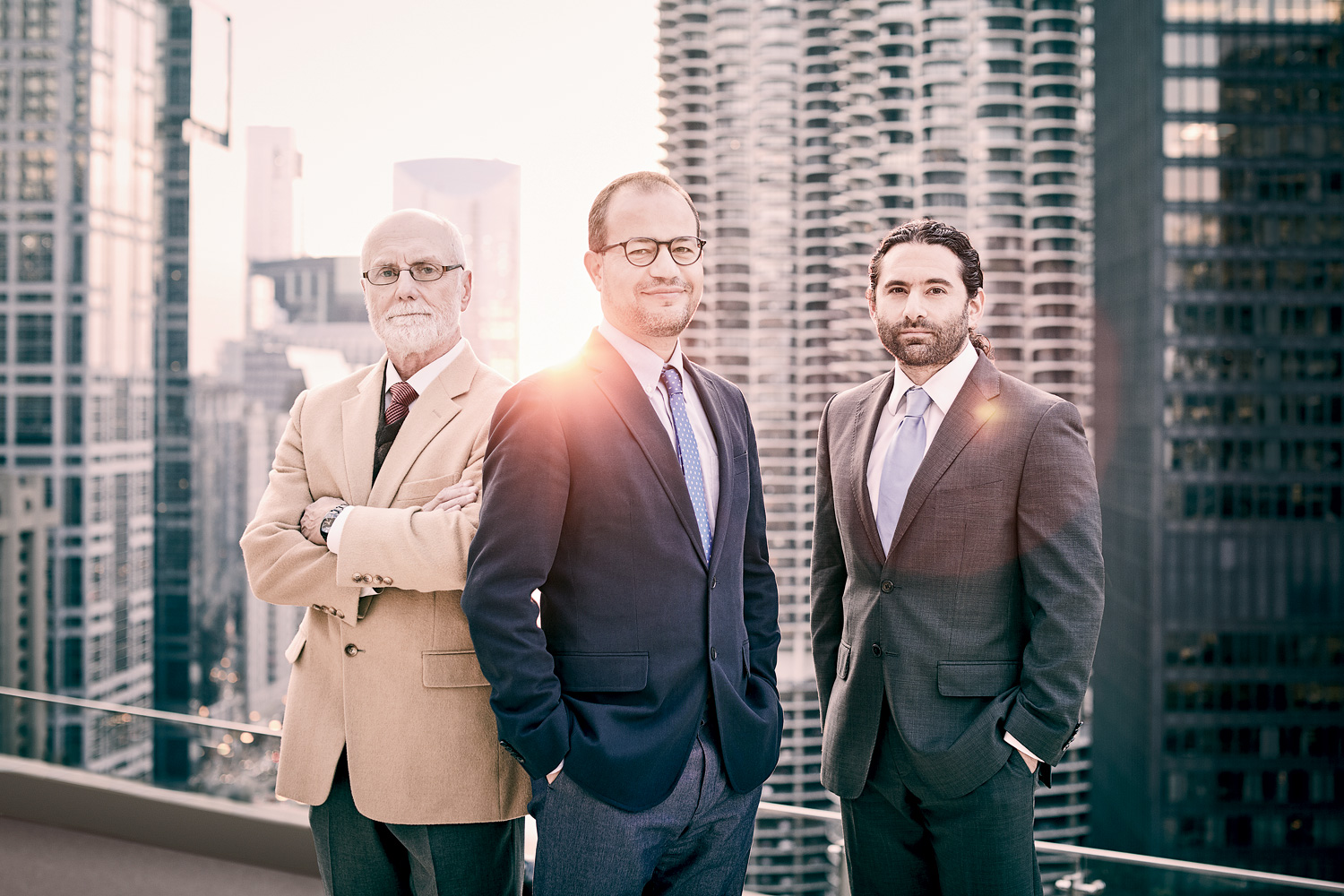In June, three Chicago doctors traveled to one of the most dangerous places on earth: Aleppo, Syria. “Before I left, I wrote letters to my loved ones, because it might have been a one-way trip,” says Samer Attar, an orthopedic surgeon with Northwestern Medicine. “Just in case I was killed.”
With entire swaths reduced to rubble, Aleppo has been almost destroyed by Syria’s nearly six-year-long civil war. When the doctors arrived, the only way in was the deadly Castello Road, a two-lane highway littered with rotting corpses, bomb craters, and the smoldering remains of cars. “The road to hell,” remembers Zaher Sahloul, a critical care specialist at Advocate Christ Medical Center in Oak Lawn.
Attar, Sahloul, and John Kahler, a pediatrician with Access Community Health Network, reported to the only remaining hospital in Aleppo, code name M10, which operated in secret. It was one of the Russian-backed Syrian government’s primary targets. “There’s a saying in Syria that if you kill a doctor, it’s as good as killing 100 soldiers, because you are killing all the future patients that the doctor can treat and you’re taking away hope from a community,” says Attar.
Attar stayed for two weeks, and Sahloul and Kahler each stayed for four days, the maximum time they could take off from their jobs in Chicago. They treated civilians injured by sniper fire and bombs but also those with mundane yet still critical needs—a diabetic who required insulin, for example. They worked in the basement to minimize dangers posed by bombings. “Every few minutes you’d hear an explosion, and the physicians would tell you what kind of ordnance it was,” recalls Kahler. “Or they’d say, ‘Move away from there, that’s where the snipers are shooting.’ ”
The three doctors view their efforts as a small way to stand up against the world’s inaction in the civil war. They also wanted to help the Syrian doctors and nurses who exemplify why they practice medicine in the first place: to help people where and when the need is greatest. Since the war began, Sahloul has been on 14 medical missions in Syria, and Attar has been on three. This was Kahler’s first trip to Syria, though he’s been part of aid operations elsewhere.
Advertisement
For Sahloul, who was born and raised in Syria, and Attar, who is of Syrian ancestry, there’s also a terrifying question: Are they witnessing the beginning of the end of their homeland? “When I look back, I don’t want to say that I wasn’t there for the Syrian people,” says Attar. “That I wasn’t there for a heritage and a culture and a people who have been a part of me since I was growing up.”
Castello Road is closed now, and no international aid has entered Aleppo since July. If and when there’s a route into the city, the doctors say, they will return. “I’d go tomorrow if I could,” says Kahler. But not to M10. In early October, the hospital was bombed beyond repair.



